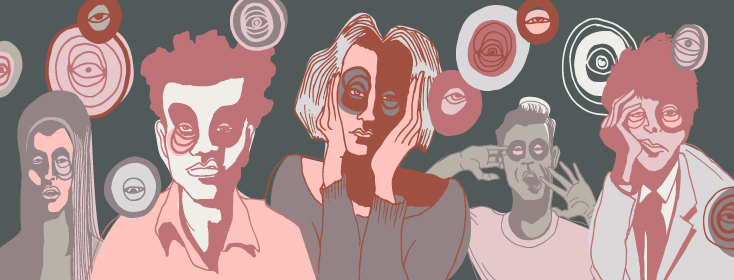Sleep, Migraine, and Insomnia
Problems with sleep are a major issue among those with chronic migraine. These sleep troubles can be problematic for a number of reasons. Individuals with chronic migraine, often have problems with both falling asleep and staying asleep. The symptoms of the migraine itself can cause issues with falling asleep; which in turn leads to worsening symptoms from the migraine.
Additionally, insomnia and other sleep disturbances can cause enough issues that they can become the very trigger that causes a migraine. Most of us have heard that while not enough sleep can cause a migraine, too much sleep can also be problematic. Unfortunately, this can easily become a catch 22 or a vicious cycle between migraines and sleep disorders.
Sleep and migraine triggers
Dr. Alex Nesbitt is a research fellow in Clinical Neurology in the Surrey Sleep Research Centre at the University of Surrey. He explains that while lack of sleep, too much sleep, shift-work, and jet lag are all known to be possible triggers for a migraine, excessive sleepiness can be an element of prodrome, and the actual sleep itself can help alleviate a migraine in some cases.1 I personally know many individuals that are episodic who can take a migraine abortive, go to sleep, and wake with the migraine completely gone. Some individuals can feel refreshed by nap, while others find they wake up with a headache or migraine.
Insomnia and chronic migraine
Many individuals with chronic migraine also deal with persistent insomnia. Individuals with migraine have a higher incidence of suffering from a group of abnormal sleep behaviors such as sleepwalking, night terrors, and restless leg syndromes.1 All of these sleep behaviors prevent the individual from achieving good restful sleep.
Insomnia and migraine may co-exist, especially in chronic sufferers. Both insomnia and migraine are more likely in people who sustain often quite mild head injuries, as part of post-concussion syndrome. Excessive sleepiness, particularly during the daytime, can be associated with headache.
Connecting sleep and migraine
As nature prefers to stay in a state of homeostasis, an individual’s body will attempt to return the homeostasis in event that either sleep or wakefulness “overloads this system in favor of one state (sleep or wakefulness) versus the other, such as staying up late, having fragmented sleep, sleeping in at the weekends, or sleeping at inappropriate times relative to your body clock (as happens in jet lag).”1 One of the best steps for an individual with chronic migraine is to attempt to maintain a scheduled sleep cycle, regardless of workdays or days off in order to try to reduce the ability of sleep issues to trigger a migraine.
Dr. Alex Nesbitt believes that a migraine could be an individual’s body’s way of placing the body back in balance by forcing someone who is sleep-deprived to sleep due to the migraine or someone who has had too much sleep to be unable to sleep due to a migraine.1 This way of thinking could explain why some individuals can easily sleep off a migraine and others find it impossible to sleep during a migraine.
More research is needed
While there are numerous links between chronic migraine and sleep issues, the bigger issue is that we need more research into the relationship between the two ailments. My own experience with a neurologist and headache specialists alike has been their lack of interest in helping a patient deal with the insomnia aspect of their medical issues. Physicians all too frequently dismiss their patients\' concerns of insomnia. If more doctors would take their patients’ insomnia seriously and work to help them resolve that issue, their overall migraine days and pain levels may be lowered by sleep alone.

Join the conversation